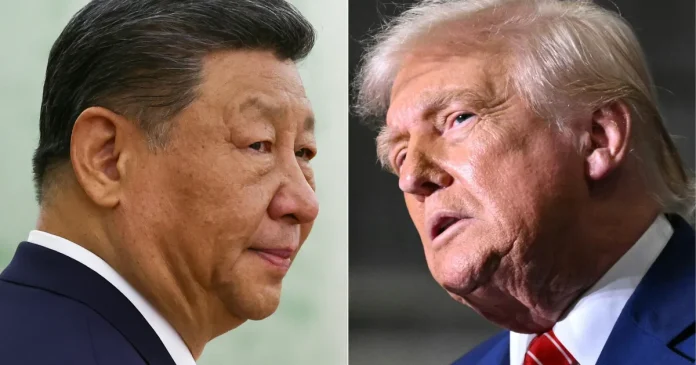The United States and China appear to be moving toward a tentative resolution, with both sides announcing a framework agreement focused on rare earth minerals and academic exchanges. President Donald Trump stated the deal is “done,” pending final sign-off by Chinese President Xi Jinping and himself, following two days of high-level negotiations in London.
The rare earth agreement is particularly significant due to the materials’ critical role in the global technology supply chain from smartphones and electric vehicles to military applications. China, which controls the majority of the global supply, had tightened export flows in recent months, prompting concern in Washington. Under the terms of the proposed agreement, China has pledged to supply the US with the necessary rare earth materials and magnets “up front,” according to Trump.
READ ALSO, Ododo Media Aide Hosts Rising Star Ajemo
In return, the US will reinstate access for Chinese students to American higher education institutions, a gesture Trump called “always good with me.” This concession appears to be a diplomatic trade-off for access to China’s mineral exports and is seen as a broader sign of thawing relations between the two superpowers.
The talks follow a volatile tariff war earlier this year that saw rates peak at 145% on some imports. A temporary truce reached in May dubbed a “total reset” by Trump led to a 90-day window to negotiate more lasting terms. Although both sides accused each other of breaching non-tariff elements of the agreement, the recent developments suggest an effort to reset bilateral ties.
US Commerce Secretary Howard Lutnick and China’s Vice Commerce Minister Li Chenggang framed the outcome of the London meetings as a framework to “implement the Geneva consensus,” referring to a previous round of talks. Washington is hopeful that the agreement will end restrictions on vital rare earths, while Beijing seeks relief from US tech export bans and visa curbs.
VIDEO: KOGI GOVERNMENT HOUSE LAUNCHES MONTHLY NEWSLETTER
Still, challenges remain. The US has maintained restrictions on advanced semiconductor sales to China and taken steps to limit Huawei’s reach in American markets. Meanwhile, Beijing has criticized US enforcement as overly harsh and inconsistent. Yet the progress made in London signals that both countries are prioritizing stability, at least in strategic sectors critical to both economies.




